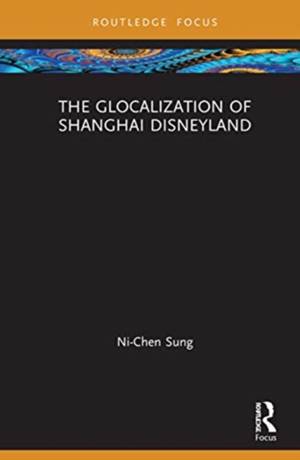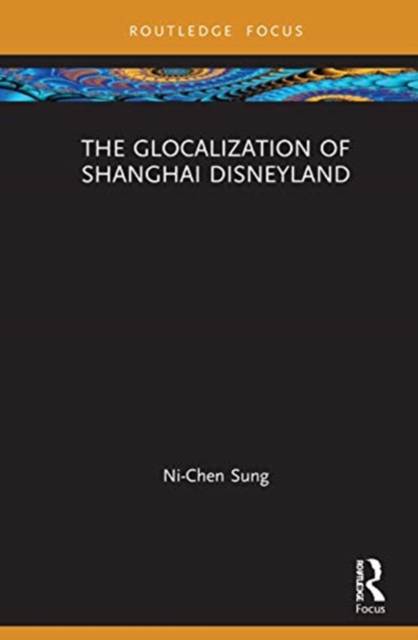
- Afhalen na 1 uur in een winkel met voorraad
- Gratis thuislevering in België vanaf € 30
- Ruim aanbod met 7 miljoen producten
- Afhalen na 1 uur in een winkel met voorraad
- Gratis thuislevering in België vanaf € 30
- Ruim aanbod met 7 miljoen producten
Omschrijving
Focusing on Disney's production of Shanghai Disneyland, this book examines how the Chinese state and the local market influence Disney's ownership and production of the identities and the representations of Shanghai Disneyland. Qualitative methods are here applied to combine both primary and secondary data, including document analysis, participant observation, and in-depth interviews.
Shanghai Disneyland is purposely created to be different from the other Disneylands, under the "authentically Disney and distinctly Chinese" mandate. In order to survive and thrive in China, Disney carefully constructs Shanghai Disneyland as Disneyland with Chinese characteristics. Previous studies tend to link Disney with cultural imperialism; however, this book argues that it is not imperialism but glocalization that promotes a global company's interests in China. In particular, the findings suggest state-capital-led glocalization: glocalization led by economic capital of the state (direct investment) and economic capital with the state (market potential). Furthermore, the four categories of glocalization with different conditions, considerations, and consequences illustrate various global-local dynamics in the process of a global formation of locality.
The Glocalization of Shanghai Disneyland will appeal to students and scholars of sociology, communication studies, business studies, and Asian studies more broadly.
Specificaties
Betrokkenen
- Auteur(s):
- Uitgeverij:
Inhoud
- Aantal bladzijden:
- 104
- Taal:
- Engels
- Reeks:
Eigenschappen
- Productcode (EAN):
- 9780367675509
- Verschijningsdatum:
- 12/04/2021
- Uitvoering:
- Hardcover
- Formaat:
- Genaaid
- Afmetingen:
- 140 mm x 216 mm
- Gewicht:
- 281 g

Alleen bij Standaard Boekhandel
Beoordelingen
We publiceren alleen reviews die voldoen aan de voorwaarden voor reviews. Bekijk onze voorwaarden voor reviews.











